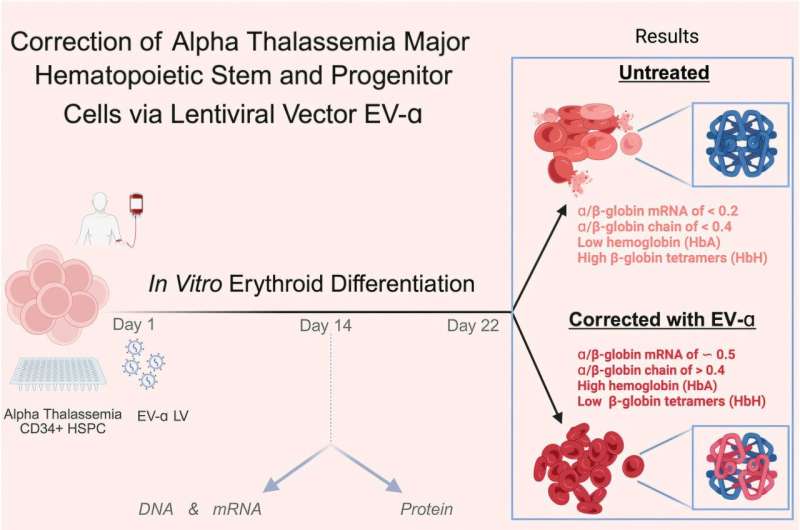Individuals born with alpha thalassemia major are missing all four copies of the genes required to produce hemoglobin. Without hemoglobin to carry oxygen in the blood, patients face serious health issues, including a lifelong dependence on blood transfusions, severe organ damage and early death due to iron overload.
While a bone marrow transplant from a matched donor could be curative, finding a compatible donor is often difficult, and the procedure carries the risk of graft versus host disease, a life-threatening condition in which transplanted cells attack the recipient’s body.

